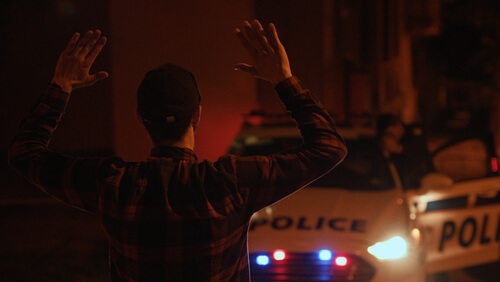When someone rich, famous or powerful gets arrested, the court process might differ in some ways compared to a regular person. The fundamental principles of the legal system still apply, of course, and everyone is subject to the same laws and rules. But the circumstances surrounding their arrest and release could vary widely, and the court must take this into account.
When a person is arrested, they are generally entitled to bail, which is a payment to the court as a guarantee the defendant will appear for their hearings. In some cases, the court might deny bail, even to a rich and famous person.
The decision to deny bail is usually made by the judge and arises from several factors, including the nature and seriousness of the crime, defendant’s criminal history, the likelihood of the defendant to appear for their court hearings (or disappear), and the potential danger they pose to the community.
Flight Risk
Most often with a powerful defendant, the reason to deny bail is that they have the means to flee the jurisdiction and not appear for their court hearings, and may in fact do so if they’re rattled enough. This isn’t usually done on the advice of counsel, so the person’s lawyer may be left holding the bag. But for a severe enough crime, extradition back to the U.S. might make sense.
Public Safety
If the court believes the defendant poses a danger to the community, they might deny bail to protect the public. In the case of a powerful person, this danger can take many forms. From overzealous fans to revenge scenarios or even threatening officers of the court itself, a rich or famous person may represent public dangers that regular people do not.
Severity of the Crime
If the defendant is accused of a particularly serious crime, like murder or terrorism, the court may deny bail due to the level of the offense. This can be looked at as a combination of the first two reasons, as a person is more likely to flee a serious charge and a rich person is more likely to have the means.
Criminal History
If the defendant has a history of failing to appear for court hearings or a criminal history that suggests they are likely to commit further crimes, the court may deny bail. A person who has a history of ignoring subpoenas, for example, is someone who might well fail to appear. Likewise, a criminal history may or may not indicate future likelihood of crimes, depending on what they’ve already been convicted of.
Make Your First Call to 1st Call Bail Bonds McKinney
Being rich or famous doesn’t automatically guarantee bail, and the court will consider each case on its own merits. Wealthy defendants may be able to pay a high bail amount, although this is not always the case. Ultimately, the decision to grant or deny is up to the judge, and they will consider the full range of factors before making their decision.
Most of us, however, aren’t that powerful. If you or a loved one has been arrested, you will want to get release as quickly as possible, which means getting ahold of a bail bond agent as soon as possible. Contact 1st Call for bail bonds in McKinney, TX 24/7, and we’ll take care of you.


